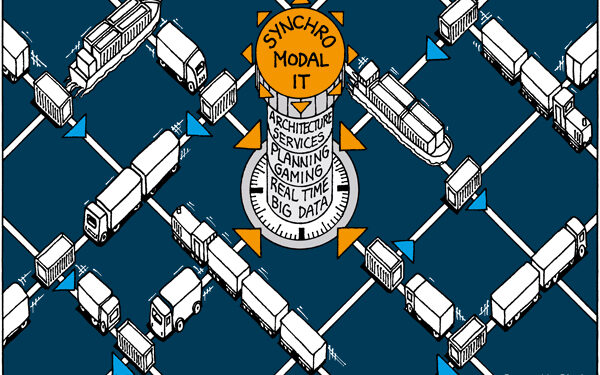SynchromodalIT
This project tackles three major challenges: the need for a unified European logistic network, the need to improve the efficiency and sustainability of logistics services, and the ambition to trigger and flip the “mental switch” among shippers and 4PLs, towards a synchromodal approach. Such an approach delays decisions about the mode of transport for each stage of a route until the very last moment, allowing optimum flexibility in routing and improved service and sustainability. The main objective of this project is to facilitate efficient, reliable, and sustainable logistics services and to strengthen the Dutch logistics sector through:
• the design of a synchromodal logistics network model and integrated service platform;
• the development of related planning and scheduling policies, and of decision support through serious gaming.
Activities/Work packages
There are knowledge-creation activities (each representing a separate PhD project): A1 –Real-time & Big Data, A2 -Planning & Gaming, and A3 – Architecture & Services. Three supporting activities have been defined, intended to facilitate and enhance knowledge creation: A4 Valorization has been defined to motivate the use of the results from our practical research, A5 describes the dissemination of knowledge, and A6 concerns the management of the project. The knowledge-creation activities A1, A2, and A3 are closely related. A3 can also be regarded as a test bed and form of validation support for A1 and A2, which in turn provide input for A3.
Expected results/ Innovativeness
The “selling point” and innovative strength of this project resides in the unique combination of operations research techniques, information technology, and serious gaming to facilitate synchromodal planning. This project will generate significant added value for innovative synchromodal logistics for the Netherlands. Very diverse results are expected from the large number of scientific papers and three PhD theses.
Factor is that many Masters students are completing internships within the companies in our consortium and this will surely lead to a large repository of information for our project. A number of decision-making scenarios will be developed, leading to innovative pilots and the implementation of new logistic services. With a long-term outcome expected for all participants improving their decision-making for freight transportation.

